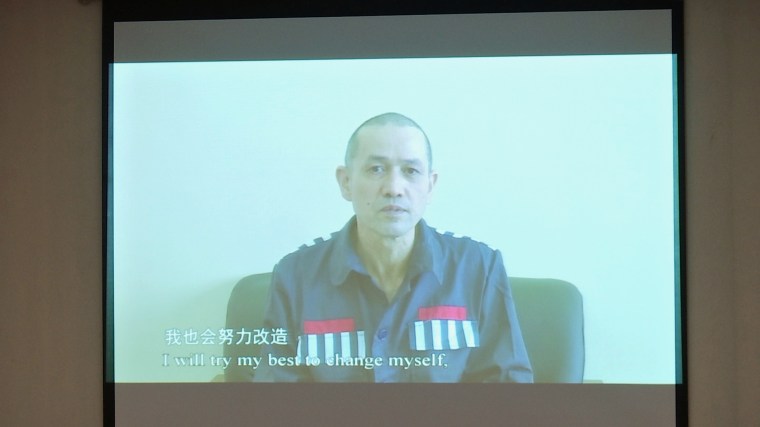Taipei, April 19, 2021 – Chinese authorities should immediately release journalist Erkin Tursun and stop using imprisoned members of the press in propaganda materials, the Committee to Protect Journalists said today.
On April 9, at a press event in Beijing, Chinese officials aired a video of Tursun, a former TV producer who has been imprisoned since 2018, according to news reports and the journalist’s son, Arfat Erkin, who wrote about the video on Twitter and communicated with CPJ via email.
In the video, which was republished on Chinese news websites, Tursun says that he will “try my best to change myself and receive the leniency of the party and the government” and encourages his son to return to China. Arfat Erkin is an exiled Uyghur-rights activist who has written and posted on social media about both of his parents; his mother was detained in 2017 and was later released.
Tursun is serving a 20-year sentence on charges of “inciting ethnic hatred, ethnic discrimination, and covering up crimes,” according to those news reports and statements published on the websites of multiple Chinese embassies.
“Using imprisoned journalist Erkin Tursun as part of a Chinese government propaganda ploy is despicable and cruel,” said Steven Butler, CPJ’s Asia program coordinator, in Washington, D.C. “The humane course for China would be to release Tursun and other imprisoned journalists immediately, and stop the government’s campaign of harassing prisoners’ families.”
Prior to his arrest in March 2018, Tursun won multiple awards for his work with the state broadcaster Ili Television, including for “The World is Beautiful and Filled with Love and Care,” a documentary on the financial struggles of three Uyghur Students, according to Radio Free Asia and CPJ research.
The journalist’s son told CPJ and also posted on Twitter that he was “somewhat relieved” to see his father still alive, but said he was “almost unrecognizable.”
“I can’t even imagine how much psychological pain he had to endure to be forced to say all those things [in the video],” Erkin said.
“Two years ago, my mom was forced to speak against me on another propaganda video,” Erkin said, referencing a similar video from 2019 in which his mother also asked him to come back to China. “Today I see my father being forced to do and say the same on the Chinese state media. I want to scream, just what [do] they want from my family? Just how much pain you want my family to experience?”
In recent months, as the mass-detention of Uyghur and other ethnic minorities in Xinjiang has received more international coverage, the Chinese government has attempted to discredit and pressure witnesses, those who publicly advocated against mass detention, and journalists, including staffers for the U.S. Congress-funded broadcaster Radio Free Asia, according to news reports.
Separately, on April 1, the state-run English-language China Global Television Network (CGTN) released “The War in the Shadows: Challenges of Fighting Terrorism in Xinjiang,” a documentary that featured imprisoned Uyghur journalist Atikem Rozi; in that video, she said that she “got the idea of doing some things from the textbooks” when she was in junior high school, implying that those books contained extremist content.
CPJ emailed the Chinese Ministry of Foreign Affairs and CGTN for comment, but did not receive any responses.
On December 1, 2020, CPJ found that at least 47 journalists were imprisoned in China, making it the worst jailer of journalists worldwide for the second year in a row.
